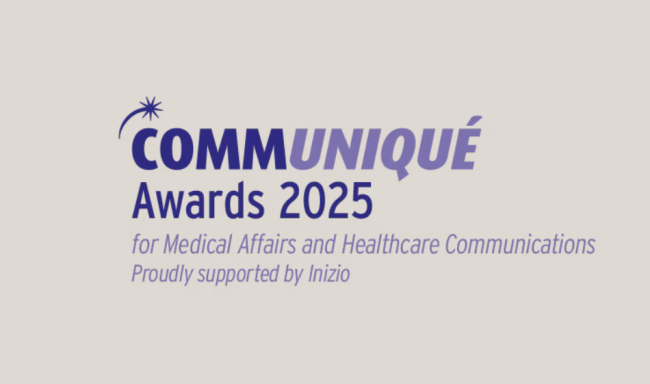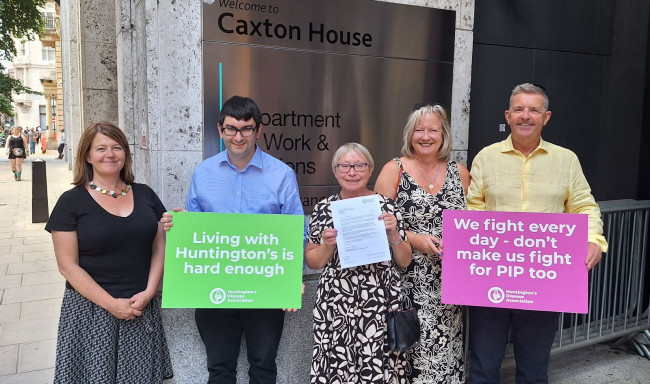We are supporting the Essentials Guarantee, a new law to make sure Universal Credit’s basic rate is always at least enough for people to afford the essentials.
Universal Credit falling so far short of the cost of essentials is putting the health of millions at risk say health bodies and charities.
Organisations representing hundreds of thousands of health and care professionals and the millions who use their services, warn that so many people are routinely going without the essentials it poses a serious risk to the UK’s health.
In a letter to the Prime Minister, the Academy of Medical Royal Colleges, representing medical professionals working in a range of fields, alongside the NHS Confederation, British Medical Association, the Royal College of Nursing and more, express their worry that, as the high prices of everyday essentials like food and housing persist, too many people are expected to live with what can be devastating knock-on consequences.
As well as not being able to afford enough food and other essential items, health and care practitioners say they see people forced to miss hospital appointments because they can’t afford the bus fare. Others observed people missing or reducing their medication because they can’t afford the prescription.
Many health and care services are already stretched to breaking point and preventative action to reduce future demand is woefully missing.
Essentials Guarantee law
We are joining the Joseph Rowntree Foundation, the Trussell Trust, and other leading charities to call for an “Essentials Guarantee”, a new law to make sure Universal Credit’s basic rate is always at least enough for people to afford the essentials.
Last year, Trussell Trust food banks provided a record-high number of food parcels to people facing hunger - nearly three-million food parcels, including more than a million for children.
JRF’s own analysis shows the weekly Universal Credit standard allowance is £35 less than the cost of essential items for a single person, contributing to millions of people forced to use food banks because they can’t make ends meet.
Recent JRF research found around nine in ten low-income households on Universal Credit are going without at least one essential like food or a warm, dry home. 2.7 million low-income households (23%) reported having a poor diet as a result of high prices over the last two years.
Danny Mortimer deputy chief executive, NHS Confederation said:
“Health leaders have been deeply concerned about the impact of the cost of living crisis on people’s health and our members have been working with local partners across the country to ensure people don’t have to go without the essentials to mitigate the impact this would have on their health."
“We know 80% of what effects health is what happens outside the NHS, and that’s why it’s vital the government takes a cross-government approach to building a national health policy rather than just an NHS policy, which is what we have seen to date."
“Health leaders stand behind this call for the government to adopt the Essentials Guarantee. It will ensure NHS services can enable the communities they serve to enjoy the best possible health, support the record number of people currently out of work due to illness and reduce further strain on overstretched services.”
Dr Latifa Patel, representative body chair, British Medical Association said:
“The link between financial security and health is undeniable. When people have to choose between paying for the very basics needed to sustain themselves and their families – whether that’s to eat nutritiously; to power, heat, clean and maintain their homes; or for transport to get to work and NHS appointments – their health and wellbeing suffers. In extreme cases, it is not unusual to have patients ask which medications they should prioritise - difficult choices which can directly affect disease outcomes, particularly in children, the older population and vulnerable adults."
“Not only does this cause misery, pain and existing conditions to deteriorate, trapping individuals in a cycle of worsening health, but it puts further pressure on the NHS at a time of unprecedented challenge. Currently doctors and our health and social care colleagues are picking up the pieces of a Government failure to ensure people can afford to stay healthy."
“We need a health in all policies approach, and this includes providing those who need it with social security that meets the basic costs of living.”
Caroline Abrahams, charity director, Age UK said:
“Over the last year, we have heard from significant numbers of people in their fifties and sixties who have been forced to make quite drastic cuts to their standard of living, impacting what they can buy to eat and drink, how warm they are in winter, and the extent to which they can afford to go out and about and have any kind of social life. It is also not unusual for them to tell us that they had always been prudent with their spending, and they never dreamed they would have to count the pennies at this time in their lives. Their disappointment and distress is often palpable and we worry hugely for many of these people’s mental and physical health. That's why we support the Joseph Rowntree Foundation and Trussell Trust campaign for an 'essentials guarantee' - it would make a world of difference to a lot of people in their run-up to retirement, for whom daily life is currency stressful and bleak."
Dr Nichola Ashby, deputy director for nursing, Royal College of Nursing, said:
“The government has said it will increase healthy life expectancy by 2035, but when people are struggling to afford the most basic day-to-day costs to look after themselves – like paying for their medical prescriptions – then this is looking increasingly unlikely.
“We know that poverty means people are more likely to be ill, and the growing health inequalities across our communities are putting additional demand on nursing staff working in an already over-stretched health sector."
“The Essentials Guarantee is an opportunity the government cannot miss to ensure everyone can afford to meet their basic needs.”
Andy Bell, chief executive, Centre for Mental Health said: “Poverty is toxic to our mental health. Not being able to afford the essentials of life puts the mental health of adults and children at risk, with serious immediate and longer term consequences. And as the prevalence of mental health problems rises, it’s more important than ever that we tackle one of the biggest risk factors people face in the UK today. We wholly endorse the Essentials Guarantee and call on the Government to act now to save people’s mental health and protect the wellbeing of future generations.”
Helen Barnard, director of policy, research and impact, The Trussell Trust, said:
“More than two-thirds (69%) of people referred to food banks in the Trussell Trust network are disabled. Poverty, disability and ill health are closely connected, with people on low incomes much more likely to have long-term health conditions and to experience more severe health difficulties. It’s simply unacceptable that so many people are left facing hunger and hardship that damages their health. Food banks are not the answer when people are going without the essentials in one of the richest economies in the world. We need a long-term solution to tackle poverty, improve the nation’s health and ensure everyone can afford the essentials. That’s why we need a social security system that provides protection and the dignity for people to cover their own essentials, such as food and bills.”
Iain Porter, JRF senior policy adviser, said:
“The links between poverty and health are well understood but the scarcity people living on low incomes are experiencing now is horrendous. The fact so many people have routinely been going without essentials for so long in one of the world’s wealthiest countries isn’t just a moral outrage, it poses a serious health risk that hasn’t gone unnoticed by healthcare professionals and patients alike."
“Going without essentials places a huge burden on families and the scale of hardship means the effect will be felt for years to come. Without action to implement an Essentials Guarantee, many families face the bleak prospect of running to catch up but never doing so because they are trapped by debt, rising prices and worsening health."
“In years to come, we may well discover that, for people with complex and long-term health needs or otherwise, the true cost of living from this crisis is that they’ve had to sacrifice their health and wellbeing because the lifeline designed to protect them was insufficient.”
About the Essentials Guarantee
The Essentials Guarantee would embed in our social security system the widely supported principle that, at a minimum, Universal Credit should protect people from going without essentials. Developed in line with public attitude insights and focus groups, this policy would enshrine in legislation.
- An independent process to regularly determine the Essentials Guarantee level, based on the cost of essentials (such as food, utilities and vital household items) for the adults in a household (excluding rent and council tax)
- That Universal Credit’s standard allowance must at least meet this level.
- That deductions (such as debt repayments to government, or as a result of the benefit cap) can never pull support below this level.
- The UK Government would be required to set the level of the Essentials Guarantee at least annually, based on the recommendation of the independent process. However, our analysis indicates that it would need to be at least around £120 a week for a single adult and £200 for a couple.
Letter sent to the Prime Minister
Dear Prime Minister,
It is wrong that, despite living in one of the wealthiest countries in the world, there are people in the UK unable to afford the essentials we all need to get by, such as food, household bills and essential travel costs.
As health and social care professionals and health charities, we are seeing too many living with the effects of going without these essentials.
Every day, we see people unable to afford enough food because their incomes are simply too low. We hear heart-breaking stories from people who are forced to miss hospital appointments because they can’t afford the bus fare, from people who are missing or reducing their medication because they can’t afford the prescription, or from people with diabetes who risk serious complications from going without food. Many conditions people present with, like asthma, are exacerbated by the poor state of their home, which should be a place of safety, which they cannot afford to maintain or even heat properly. Many of the people we help and care for say the stress and anxiety of getting behind on bills is taking a serious toll on their mental wellbeing.
These are just some of the countless examples we have of how seriously this scarcity is impacting people’s physical and mental health.
These impacts will be increasing demand on health and care services, now and in the future, when these services are already stretched to breaking point. What’s woefully missing is appropriate, preventative action.
Our social security system should offer adequate support to anyone in need of help, but right now it’s not providing enough income to cover the cost of life’s essentials. According to research from the Joseph Rowntree Foundation, around 9 in 10 low-income households in receipt of Universal Credit are going without at least one essential, such as food or a warm home, a number that has not budged since they first started tracking in May 2022. The basic rate of Universal Credit must at least cover life's essentials, with support never being pulled below that level.
Together we’re calling on you to acknowledge the cost-of-living emergency is a health emergency and adopt the Essentials Guarantee to protect the nation’s health now and in the years to come.
Signed
Academy of Medical Royal Colleges
Age UK
Asthma + Lung UK
Barnardo’s
British Association of Social Workers
British Liver Trust
British Medical Association
British Psychological Society
Centre for Mental Health
Diabetes UK
Huntington’s Disease Association
Kidney Care UK
Marie Curie
Mental Health UK
Mental Health Foundation
Mind
MND Association
MS Society
National AIDS Trust
NHS Confederation
Parkinson’s UK
Rethink Mental Illness
Royal College of Emergency Medicine
Royal College of Nursing
Royal College of Obstetricians and Gynaecologists
Royal College of Paediatrics and Child Health
Royal College of Physicians
Stroke Association
The Faculty of Intensive Care Medicine
The Money and Mental Health Policy Institute




